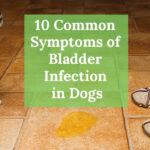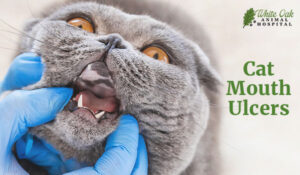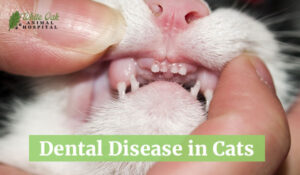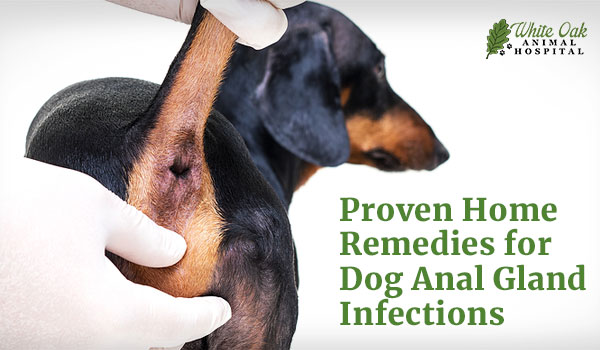
Anal gland infection in dogs is a common yet often misunderstood condition that requires timely attention and treatment. These small glands, located on either side of your dog’s anus, play a crucial role in their overall health. When functioning properly, they release a fluid that dogs use for marking territory. However, when these glands become blocked or infected, they can cause significant discomfort and lead to more severe health issues.
The importance of addressing an anal gland infection in dogs cannot be overstated. Early detection and intervention are vital to prevent the infection from worsening or spreading. Common signs of an anal gland infection include scooting, excessive licking of the anal area, and visible swelling or redness. If left untreated, an anal gland infection in dogs can lead to abscesses or chronic pain, which may require surgical intervention.
Introducing home remedies as a complementary treatment can be an effective way to manage mild cases of anal gland infection in dogs. These remedies are not only cost-effective but can also provide immediate relief. However, it is essential to understand that while home remedies can be helpful, they should not replace professional veterinary care when necessary. By combining home care with veterinary guidance, you can ensure the best outcome for your dog’s health.
What Causes Anal Gland Infection in Dogs?
Understanding the causes of anal gland infection in dogs is the first step in preventing this uncomfortable condition. The primary reason for anal gland infections in dogs is the improper emptying of the anal glands. When these glands do not empty naturally during defecation, they can become impacted, leading to infection. This is why it is crucial to monitor your dog’s health closely and take preventive measures where possible.
 Several factors contribute to the occurrence of anal gland infection in dogs. Diet plays a significant role; a diet low in fiber can result in softer stools, which may not exert enough pressure on the anal glands to empty them naturally. Additionally, certain breeds are more prone to anal gland issues, particularly small breeds like Chihuahuas and Poodles. These dogs often require more vigilant care to prevent anal gland infections.
Several factors contribute to the occurrence of anal gland infection in dogs. Diet plays a significant role; a diet low in fiber can result in softer stools, which may not exert enough pressure on the anal glands to empty them naturally. Additionally, certain breeds are more prone to anal gland issues, particularly small breeds like Chihuahuas and Poodles. These dogs often require more vigilant care to prevent anal gland infections.
Inflammation and bacterial infection are common results of untreated anal gland issues. When the anal glands become impacted, they create an environment where bacteria can thrive, leading to infection. If an anal gland infection in dogs is not addressed promptly, it can escalate to more severe health problems, including abscesses or even systemic infections. Therefore, understanding the causes of anal gland infection in dogs is crucial for effective prevention and treatment.
Recognizing the Symptoms Early: Key Signs Your Dog Might Have Anal Gland Infection
Recognizing the early signs of anal gland infection in dogs is essential for prompt treatment. The sooner you identify the symptoms, the more effective your intervention will be. Common symptoms of anal gland infection in dogs include scooting, where your dog drags its rear across the ground, and excessive licking or biting of the anal area. These behaviors are often the first indicators that something is wrong.
 In addition to behavioral changes, physical symptoms such as swelling, redness, or a foul odor emanating from the anal area are telltale signs of an anal gland infection in dogs. If you notice these signs, it is crucial to take action immediately to prevent the condition from worsening. In some cases, your dog may also exhibit signs of pain or discomfort when sitting or defecating, further indicating an anal gland issue.
In addition to behavioral changes, physical symptoms such as swelling, redness, or a foul odor emanating from the anal area are telltale signs of an anal gland infection in dogs. If you notice these signs, it is crucial to take action immediately to prevent the condition from worsening. In some cases, your dog may also exhibit signs of pain or discomfort when sitting or defecating, further indicating an anal gland issue.
Early detection of anal gland infection in dogs allows for more effective home remedy application. However, it is equally important to know when to seek veterinary care. If your dog’s symptoms persist or worsen despite home treatment, or if you notice any signs of an abscess, professional veterinary attention is necessary. This ensures that the infection does not lead to more severe health complications.
Combatting Anal Gland Infection in Dogs: 3 Amazing and Proven Home Remedies
Dietary Adjustments to Prevent and Treat Anal Gland Issues
One of the most effective home remedies for managing anal gland infection in dogs is making dietary adjustments. A high-fiber diet plays a crucial role in maintaining healthy anal glands by ensuring that your dog’s stools are firm enough to naturally express the glands during defecation. This simple change can significantly reduce the risk of anal gland infection in dogs.
 Certain foods and supplements can help in this regard. Incorporating fiber-rich foods like pumpkin or adding fiber supplements to your dog’s diet can promote healthier bowel movements and prevent anal gland issues. Additionally, omega-3 fatty acids, found in fish oil, can help reduce inflammation, further aiding in the prevention of anal gland infection in dogs.
Certain foods and supplements can help in this regard. Incorporating fiber-rich foods like pumpkin or adding fiber supplements to your dog’s diet can promote healthier bowel movements and prevent anal gland issues. Additionally, omega-3 fatty acids, found in fish oil, can help reduce inflammation, further aiding in the prevention of anal gland infection in dogs.
Integrating these dietary changes into your dog’s routine is straightforward. Start by gradually increasing fiber in your dog’s meals and monitor their bowel movements for any improvements. It’s important to maintain consistency in their diet to ensure long-term benefits and reduce the likelihood of anal gland infection in dogs.
Warm Compresses for Immediate Relief
Applying warm compresses is another proven home remedy that provides immediate relief for dogs suffering from anal gland infection. Warm compresses help reduce inflammation and pain, making it easier for your dog to feel comfortable during the healing process. This remedy is particularly useful for dogs with mild to moderate anal gland infections.
To apply a warm compress, soak a clean cloth in warm water, wring out the excess, and gently press it against your dog’s anal area. Ensure the compress is not too hot to avoid burning your dog’s skin. Hold the compress in place for about five to ten minutes, and repeat this process two to three times a day until you notice an improvement in your dog’s condition. Regular application can help reduce the severity of an anal gland infection in dogs.
The frequency and duration of treatment depend on the severity of the infection. For mild cases, a few days of warm compress application may suffice. However, if the infection persists, it’s essential to consult your veterinarian for further guidance on managing an anal gland infection in dogs.
Natural Anti-Inflammatory and Antibacterial Agents
Using natural anti-inflammatory and antibacterial agents is a safe and effective way to combat anal gland infection in dogs. Remedies such as witch hazel and coconut oil have been shown to reduce inflammation and fight infection without causing harm to your dog. These natural remedies are particularly beneficial for dogs with sensitive skin.
 Witch hazel is known for its anti-inflammatory properties, making it an excellent choice for reducing swelling and discomfort associated with anal gland infection in dogs. To use, simply apply a small amount of witch hazel to a cotton ball and gently dab the affected area. Coconut oil, with its antibacterial properties, can also be applied directly to the anal area to help fight infection.
Witch hazel is known for its anti-inflammatory properties, making it an excellent choice for reducing swelling and discomfort associated with anal gland infection in dogs. To use, simply apply a small amount of witch hazel to a cotton ball and gently dab the affected area. Coconut oil, with its antibacterial properties, can also be applied directly to the anal area to help fight infection.
When using these remedies, it is important to monitor your dog for any adverse reactions. While these natural agents are generally safe, every dog is different, and it’s important to discontinue use if you notice any signs of irritation. These remedies are best used as a complement to other treatments for anal gland infection in dogs, providing a holistic approach to healing.
When Home Remedies Aren’t Enough: Understanding the Role of Professional Treatment
While home remedies can be effective in managing mild cases of anal gland infection in dogs, there are times when professional veterinary care is necessary. Understanding when to transition from home care to professional treatment is crucial for your dog’s health. If your dog’s symptoms persist or worsen despite home treatment, it may be time to consult your veterinarian.
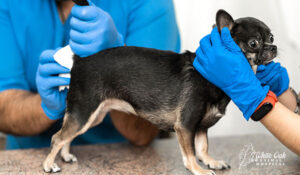 A thorough veterinary assessment is essential for diagnosing and treating more severe cases of anal gland infection in dogs. Your veterinarian may recommend professional treatments such as manual expression of the glands, antibiotics, or even surgery in severe cases. These treatments are designed to address the root cause of the infection and prevent it from recurring.
A thorough veterinary assessment is essential for diagnosing and treating more severe cases of anal gland infection in dogs. Your veterinarian may recommend professional treatments such as manual expression of the glands, antibiotics, or even surgery in severe cases. These treatments are designed to address the root cause of the infection and prevent it from recurring.
Delaying professional treatment can lead to serious complications, including abscesses or systemic infections. It’s important to recognize the limits of home remedies and seek veterinary care when needed to ensure your dog’s well-being. Professional intervention, combined with ongoing home care, can provide the best outcome for dogs suffering from anal gland infection.
Preventive Measures Beyond Home Remedies
Preventing anal gland infection in dogs goes beyond just treating the symptoms. Regular veterinary check-ups and routine anal gland expression are key to maintaining your dog’s anal gland health. Your veterinarian can assess your dog’s risk for anal gland issues and recommend the appropriate frequency for gland expression.
Long-term dietary and lifestyle changes are also crucial for preventing anal gland infection in dogs. Maintaining a high-fiber diet, ensuring your dog gets regular exercise, and keeping your dog’s weight in check can all contribute to healthy anal glands. These preventive measures can help reduce the frequency and severity of anal gland issues over your dog’s lifetime.
Hygiene and grooming practices also play a role in supporting anal gland health. Regularly cleaning your dog’s anal area and keeping the surrounding fur trimmed can prevent infections from occurring. By combining these preventive measures with regular veterinary care, you can significantly reduce the risk of anal gland infection in dogs.
 Addressing anal gland infection in dogs early is crucial for preventing long-term health issues. By recognizing the signs and symptoms early, you can take proactive steps to manage the condition with home remedies. However, it is equally important to know when to seek professional help. White Oak Animal Hospital offers integrative options, including Traditional Chinese Veterinary Medicine (TCVM) Telemedicine consultations, which provide unique solutions not available elsewhere.
Addressing anal gland infection in dogs early is crucial for preventing long-term health issues. By recognizing the signs and symptoms early, you can take proactive steps to manage the condition with home remedies. However, it is equally important to know when to seek professional help. White Oak Animal Hospital offers integrative options, including Traditional Chinese Veterinary Medicine (TCVM) Telemedicine consultations, which provide unique solutions not available elsewhere.
With 28+ years of experience, White Oak Animal Hospital is well-equipped to handle even the most complex cases of anal gland infection in dogs. Our team of experts is dedicated to providing the highest level of care, combining traditional and holistic approaches to ensure the best outcome for your pet. We encourage you to reach out to us for a consultation to discuss how we can help keep your dog healthy and comfortable.
Frequently Asked Questions About Anal Gland Infection in Dogs
Can anal gland infections heal on their own?
In some cases, mild anal gland infections in dogs may resolve on their own, particularly if the glands can empty naturally. However, it’s important to monitor your dog closely, as untreated infections can lead to more serious complications. Consulting a veterinarian is always advisable to ensure proper care.
How often should I express my dog’s anal glands?
The frequency of anal gland expression depends on your dog’s individual needs. Some dogs may require monthly expression, while others might need it less frequently. Your veterinarian can assess your dog’s condition and recommend an appropriate schedule to prevent anal gland infection in dogs.
Are certain dog breeds more prone to anal gland infections?
Yes, certain breeds, particularly small and toy breeds like Chihuahuas, Poodles, and Cocker Spaniels, are more prone to anal gland infections. These breeds may require more frequent monitoring and care to prevent anal gland issues from developing.
Can diet alone prevent anal gland infections in dogs?
While diet plays a significant role in preventing anal gland infection in dogs, it is not the only factor. A high-fiber diet can help, but regular veterinary check-ups, proper hygiene, and timely gland expression are also important in preventing anal gland issues.
Related Posts
-
Two Effective Natural Remedies for Dogs with Allergies
Dogs with allergies are tough to treat! The dog allergy game plan is relieving symptoms.…
-
Looking for Herbal Remedies for Infertility in Dogs?
Will Herbal Remedies for Infertility Help My Dog? Infertility in dogs. It's a real bummer.…
-
10 Common Symptoms of a Bladder Infection in Dogs You Should Know to Protect Your Furry Friend
Bladder infections in dogs, also known as urinary tract infections (UTIs), are common health issues…
-
Effective Home Remedies for Dog Ear Infections: Addressing 5 Common Causes
Home remedies for dog ear infections can offer a practical and cost-effective solution to ear…



